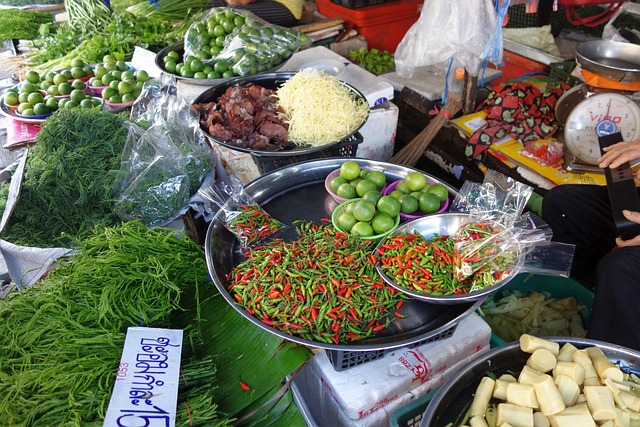The surge in local food delivery services has revolutionized access to fresh, locally sourced meals, bridging the gap between farmers and urban consumers. These platforms not only offer convenient farm-to-table dining experiences but also promote sustainable agriculture, reduce carbon footprints, and empower small farms. By fostering direct relationships, these services enhance transparency, support local economies, and encourage healthier eating habits while showcasing regional culinary traditions in meal preparation practices aligned with local ingredients. Effective collaboration between delivery services, farmers, and communities is crucial to ensure the success and authenticity of this growing trend in local food delivery and meal preparation.
In today’s fast-paced world, local food delivery services have surged in popularity, revolutionizing how we access fresh produce. This trend not only caters to convenience but also offers a unique opportunity to support local farms and bolster regional economies. The article delves into the rising significance of local food delivery and meal preparation platforms in fostering collaborations that benefit small farmers. By exploring effective strategies, this piece highlights how these services can contribute to sustainable agricultural practices while enhancing community connections to local produce.
- The Rise of Local Food Delivery Services and Their Impact on Small Farms
- Benefits of Supporting Local Farms through Meal Preparation and Delivery Platforms
- Strategies for Effective Collaboration Between Local Delivery Services and Farmers
The Rise of Local Food Delivery Services and Their Impact on Small Farms

In recent years, the local food delivery industry has experienced significant growth, revolutionizing the way consumers access fresh produce and meals prepared by local chefs. This trend has brought about a renewed focus on supporting small, independent farms and promoting sustainable agriculture. With just a few clicks, individuals can now enjoy farm-to-table dining experiences conveniently delivered to their doorstep. Local food delivery services have become a game-changer for small farms, providing them with a direct sales channel to urban consumers who appreciate the quality and provenance of locally sourced ingredients.
These platforms not only bridge the gap between farmers and city dwellers but also encourage a more sustainable and resilient food system. By prioritizing local produce, these services reduce the carbon footprint associated with traditional supply chains, ensuring that meals are prepared using the freshest, most environmentally friendly ingredients. This shift in consumer behavior has empowered small farms to thrive, fostering economic growth and strengthening local communities.
Benefits of Supporting Local Farms through Meal Preparation and Delivery Platforms

Supporting local farms through meal preparation and delivery platforms offers a multitude of benefits. By choosing locally sourced ingredients, these platforms promote sustainable agricultural practices, reducing the carbon footprint associated with long-distance food transportation. This not only minimizes environmental impact but also ensures fresher produce, as fruits and vegetables are delivered from farm to table in shorter time frames.
Moreover, local food delivery services foster a stronger connection between communities and their food sources. They encourage consumers to appreciate the work of nearby farmers, supporting small businesses and contributing to the economic vitality of local agriculture. This direct relationship also allows for greater transparency about where food comes from, promoting healthier eating habits and encouraging a deeper understanding of seasonal availability and diverse culinary traditions.
Strategies for Effective Collaboration Between Local Delivery Services and Farmers

For local food delivery services to truly support local farms, effective collaboration is key. This involves open communication channels where farmers can express their harvest schedules and specific needs, allowing delivery services to plan routes efficiently and source fresh produce accordingly. Implementing flexible ordering systems that accommodate farmers’ variability in crop yields and types enhances this partnership.
Additionally, meal preparation practices should be aligned with local ingredients. Farmers often have unique methods and recipes that highlight regional specialties, so integrating these into the menu not only promotes authenticity but also ensures dishes are tailored to fresh, locally sourced produce. This symbiotic approach benefits both parties, fostering a sustainable food system where every aspect from farm to table is carefully considered.
Local food delivery services have emerged as powerful allies for small farms, fostering a sustainable and mutually beneficial relationship. By leveraging meal preparation and delivery platforms, these services not only satisfy growing consumer demands for local produce but also contribute to the economic vitality of rural communities. Through strategic collaborations, farmers can access broader markets and increase their income while delivering fresh, locally-sourced food directly to consumers’ doorsteps. This synergistic partnership is a win-win scenario that strengthens agricultural diversity and promotes a healthier, more sustainable food system.






